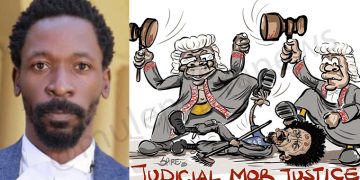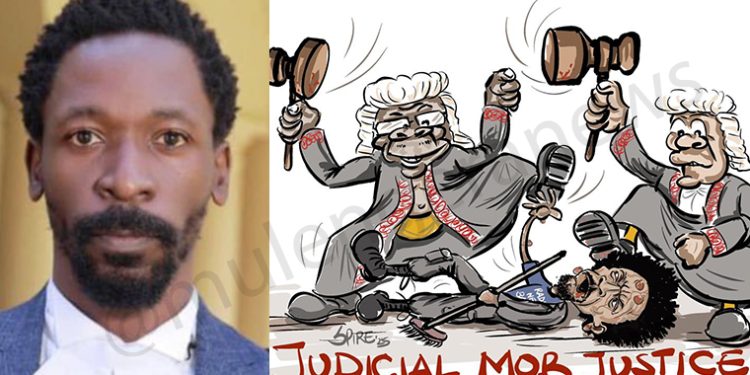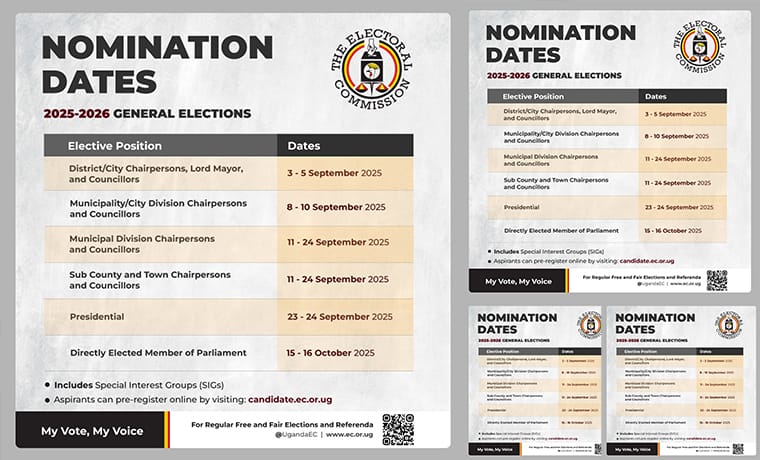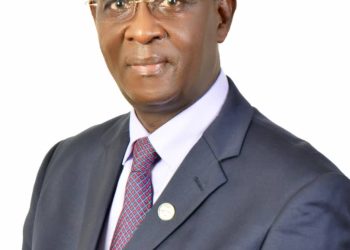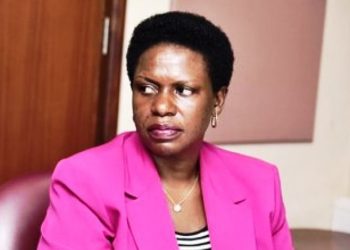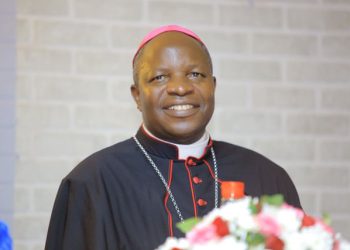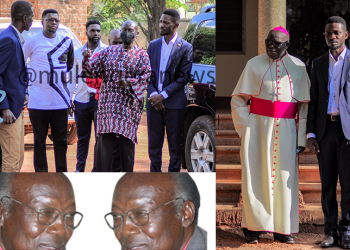By Isaac Christopher Lubogo
SSEMAKADDE’S ARREST: “The Gavel vs. The Voice: The Legal and Constitutional Implications of Jailing a Sitting ULS President” Isaac Kimaze Ssemakadde:
The recent sentencing of Uganda Law Society (ULS) President Isaac Ssemakadde to a two-year imprisonment for contempt of court has sparked significant debate within the legal community and the broader public. Justice Musa Ssekaana of the High Court in Kampala handed down the sentence, citing Ssemakadde’s derogatory remarks on social media, which were deemed to undermine the authority of the judiciary.
Context and Legal Implications
Ssemakadde’s conviction centers on his public criticisms of judicial decisions and specific judges, which the court interpreted as contemptuous. This case underscores the delicate balance between upholding the dignity of the judiciary and protecting the fundamental right to freedom of expression. While the judiciary must maintain its authority and command respect, it is equally important to ensure that individuals, including legal practitioners, can express dissenting opinions without fear of retribution.
Historical Parallels
This incident is not isolated in Uganda’s legal history. Notably, former ULS President Sam K. Njuba was imprisoned for speaking out against rights violations and murders during his tenure. He later reflected that he had no regrets for his actions, highlighting the perennial tension between legal advocacy and governmental authority.
Broader Implications for the Legal Profession
The imprisonment of a sitting ULS president raises concerns about the independence of the legal profession and the space available for lawyers to critique the judiciary. It prompts a critical examination of the boundaries of acceptable discourse and the mechanisms through which the legal community can hold the judiciary accountable without crossing into contempt.
While it is imperative to uphold the integrity of the judiciary, it is equally crucial to protect the rights of individuals to express dissenting views. The legal community must navigate these complex dynamics to ensure that justice is served without compromising fundamental freedoms.
Legal and Judicial Consequences of Imprisoning a Sitting Uganda Law Society (ULS) President
The imprisonment of Isaac Ssemakadde, the sitting President of the Uganda Law Society (ULS), for contempt of court has profound legal, judicial, and institutional implications.
- Legal Consequences
Loss of Office: The ULS constitution and governing statutes may have provisions regarding the impeachment or removal of a sitting president if they are convicted of a criminal offense. However, contempt of court is not necessarily a criminal offense in the traditional sense; it is a quasi-criminal proceeding.
Impact on Professional Standing: The Law Council and ULS disciplinary committee may assess whether the conviction affects Ssemakadde’s standing as an advocate. If it is deemed to undermine the integrity of the legal profession, he could face temporary suspension or disbarment from practice.
Precedent for Other Lawyers: This case sets a dangerous precedent where lawyers, especially those outspoken against judicial decisions, could be subjected to contempt charges as a means of silencing dissent. This could create a chilling effect on free speech within the legal fraternity.
- Judicial Consequences
Erosion of Judicial Independence: If the judiciary is perceived as using contempt proceedings to silence criticism, it risks losing public confidence in its impartiality and independence.
Increased Scrutiny of Contempt Laws: This case could spark constitutional challenges regarding the broad and sometimes vague nature of contempt of court laws in Uganda. Ssemakadde’s case could lead to legal reforms or judicial clarifications on the scope of contempt.
Potential for Backlash: There could be backlash from international legal bodies and human rights organizations, which may view this ruling as a violation of freedom of expression and the right to critique judicial decisions.
What Options Does Ssemakadde Have?
- Appeal the Conviction:
He can file an appeal in a higher court (Court of Appeal or Supreme Court) challenging the ruling on grounds of procedural irregularities, excessive sentencing, or violation of constitutional rights (such as free speech).
- Seek Constitutional Interpretation:
He can petition the Constitutional Court to rule on whether contempt of court laws in Uganda unduly restrict freedom of expression. This could lead to landmark legal reforms.
- Apply for Bail or Sentence Suspension:
He can apply for bail pending appeal or request the court to suspend the sentence until the appeal is determined.
- Engage in Civil and Human Rights Advocacy:
Ssemakadde, known for his outspoken activism, may leverage this moment to spark legal discourse on judicial accountability, free speech, and legal reform.
Impact on the Uganda Law Society (ULS)
- Institutional Crisis and Leadership Void:
The imprisonment of its president places the ULS in a constitutional dilemma regarding leadership succession. The society must clarify whether Ssemakadde remains in office while appealing or if a temporary replacement must be appointed.
- Pressure to Defend the Legal Fraternity:
The ULS is now under pressure to take a strong stance—either defending Ssemakadde’s right to free speech or siding with the judiciary’s need to maintain respect for the courts. Their response will shape public perception of the ULS’s independence.
- Deepening Fractures Within the Legal Community:
Lawyers and judges who support judicial restraint may see this as a justified punishment for disrespecting the courts. Others, particularly those in legal activism, will view this as judicial overreach aimed at intimidating legal practitioners.
- International and Regional Implications:
International legal organizations, such as the East African Law Society (EALS) and International Bar Association (IBA), may condemn the ruling, potentially damaging Uganda’s reputation in global legal circles.
A Critical Moment for Uganda’s Legal System
The imprisonment of a sitting ULS President raises fundamental questions about judicial independence, freedom of expression, and the limits of contempt laws. Ssemakadde’s next steps—whether appealing, petitioning for constitutional review, or rallying legal activism—will determine the future trajectory of judicial accountability in Uganda.
For the ULS, this moment demands strong institutional leadership to ensure that the legal profession remains both respected and free to critique the judiciary without fear of persecution.
Is the Incarceration of Uganda Law Society President Isaac Ssemakadde Justiciable?
The question of whether the imprisonment of Isaac Ssemakadde is legally justiciable—meaning whether it can be properly examined, challenged, or overturned by legal processes—requires an analysis of contempt of court laws, constitutional rights, and procedural fairness.
- Legal Basis for Contempt of Court in Uganda
Contempt of court is recognized in Ugandan law as an offense aimed at protecting the dignity and authority of the judiciary. Courts have inherent powers to punish contempt under:
The Judicature Act (Cap 13)
Article 128(3) of the Constitution of Uganda, which affirms the independence of the judiciary and prohibits interference with court proceedings.
Common Law Precedents, which allow courts to act against those who undermine their authority.
However, while contempt laws serve a legitimate function, they must be balanced against constitutional freedoms, particularly:
Article 29(1)(a) of the Constitution, which guarantees freedom of speech, including the right to critique public institutions.
Article 44(c), which prohibits derogation from the right to a fair hearing, meaning an accused person in contempt proceedings must be given adequate defense rights.
Key Question: Was the Incarceration of Ssemakadde Justiciable?
To determine this, we must ask:
- Was due process followed in convicting him?
- Does the sentence align with the principles of justice and proportionality?
- Does contempt law override constitutional rights such as free speech?
- Legal Arguments That His Imprisonment Is NOT Justiciable (Legally Flawed)
(a) Violation of Free Speech
Courts must balance contempt powers with fundamental freedoms. The African Commission on Human and Peoples’ Rights has emphasized that public officials, including judges, must be open to criticism (Media Rights Agenda v. Nigeria, 2000).
If Ssemakadde was punished merely for expressing a legal opinion or criticism of a judicial ruling, his imprisonment contravenes free speech protections under Ugandan and international law.
(b) Abuse of Judicial Discretion
Contempt should be used sparingly, and sentencing should be proportional. A two-year imprisonment for social media remarks is excessive and raises concerns about whether the court misused its powers.
In Attorney General v. The Monitor (2001), the Supreme Court of Uganda ruled that judicial discretion must not be used to suppress legitimate criticism of public officials.
(c) Lack of Fair Trial Principles
Contempt proceedings must adhere to fair hearing rights. If Ssemakadde was denied an opportunity to adequately defend himself or present mitigating factors, this violates Article 28 of the Constitution, which guarantees the right to a fair trial.
A fair contempt process requires clarity on what constitutes contempt, whether warnings were given, and whether alternative sanctions (such as fines) were considered before resorting to imprisonment.
- Legal Arguments That His Imprisonment IS Justiciable (Legally Sound)
(a) Protection of Judicial Authority
Courts worldwide punish contempt to maintain order and integrity. Without such powers, the judiciary could face uncontrolled public attacks, eroding confidence in the legal system.
In R v. Gray (1900), the UK courts upheld contempt penalties for scandalizing the judiciary, arguing that courts must be shielded from undue public influence.
(b) Precedents for Punishing Lawyers Who Undermine the Judiciary
Legal professionals are held to higher ethical standards. Under Rule 13 of the Advocates (Professional Conduct) Regulations, lawyers must respect the courts and avoid conduct that brings the judiciary into disrepute.
If Ssemakadde’s statements crossed the line into defamatory or inflammatory attacks, the court was justified in taking action to protect judicial integrity.
(c) No Immunity for Lawyers and Public Figures
The law applies equally to all, and being a ULS President does not grant immunity from judicial discipline.
In In re Mulira (1967), a Ugandan lawyer was convicted for contempt after making disparaging comments about judges, reinforcing the principle that no individual is above the law.
- Conclusion: Is the Imprisonment of Ssemakadde Justiciable?
Based on the above analysis, the case for challenging the imprisonment (on constitutional and procedural grounds) is stronger than the justification for it.
Why His Imprisonment Should Be Challenged
- It appears to violate freedom of speech protections by criminalizing judicial criticism.
- The punishment is excessive, given that alternatives (warnings, fines, or a professional reprimand) were available.
- It could set a dangerous precedent for silencing legal professionals who challenge the judiciary.
What Next?
Appeal for Judicial Review: Ssemakadde should challenge the conviction in the Court of Appeal or Supreme Court to clarify the limits of judicial power in contempt cases.
Petition the Constitutional Court: A constitutional challenge could lead to a landmark ruling on the balance between judicial respect and free speech.
Call for Legal Reforms: This case highlights the need for clearer guidelines on contempt law, ensuring that punishment aligns with constitutional rights.
Semakadde arrest food for thought….let’s analyze these questions.
- How does this ruling align with Uganda’s constitutional provisions regarding freedom of speech and expression, particularly for public figures like Ssemakadde?
Uganda’s Constitution (1995) guarantees freedom of speech and expression under Article 29(1)(a). This right extends to every citizen, including public figures, with the usual limitations found in Article 43, which restricts freedoms where they prejudice public interest, national security, or the rights of others. However, the judiciary must balance these limitations with the constitutional principle that restrictions on fundamental rights must be necessary, proportionate, and justifiable in a democratic society.
For public figures like Ssemakadde, a higher threshold for restricting speech is generally expected, especially where their statements contribute to public debate on matters of governance, legal reforms, or human rights. The ruling, therefore, raises critical questions about whether judicial interpretation has struck the correct balance between legitimate restrictions and overreach, potentially stifling legitimate criticism of state institutions.
- Could this ruling set a precedent for future cases involving public figures or critics of the government, potentially chilling free speech?
Yes, this ruling could set a troubling judicial precedent for similar cases involving critics of the government, particularly legal practitioners, activists, and opposition figures. Uganda’s jurisprudence follows the principle of stare decisis, meaning lower courts will likely rely on this ruling when handling similar cases.
If courts continue to criminalize dissent or impose severe penalties for speech-related offenses, this could create a chilling effect—discouraging public discourse out of fear of legal repercussions. This would contradict international standards on freedom of expression, such as those enshrined in Article 19 of the ICCPR, which Uganda has ratified. The judiciary must, therefore, be wary of inadvertently suppressing robust democratic engagement.
- What are the chances of Ssemakadde’s appeal succeeding, and how might the Court of Appeal’s decision impact his tenure as Uganda Law Society President?
The success of Ssemakadde’s appeal will depend on whether the Court of Appeal finds that the trial court misapplied constitutional principles or failed to apply necessary safeguards for freedom of speech. Strong arguments could be made regarding:
Proportionality and necessity—Was the ruling excessive relative to the alleged offense?
Selective prosecution—Was the case politically motivated?
Procedural fairness—Did the trial adhere to fair trial standards under Article 28 of the Constitution?
If the Court of Appeal overturns the ruling, it could vindicate Ssemakadde and strengthen judicial independence. However, if the conviction is upheld, it could raise concerns about whether judicial decisions are being used to silence outspoken legal figures.
As for his tenure as Uganda Law Society President, the ULS Constitution and regulations may disqualify him from office if he has a criminal conviction involving moral turpitude. However, if the ruling is viewed as politically motivated, ULS members might rally behind him, making his leadership even more symbolic in the fight for judicial independence and freedom of expression.
- How might Ssemakadde’s imprisonment affect the Uganda Law Society’s operations, reputation, and relationship with the government?
Ssemakadde’s imprisonment would undoubtedly create institutional and reputational dilemmas for the Uganda Law Society (ULS). Several implications arise:
Operational Challenges: If he remains in office while incarcerated, his ability to execute ULS duties will be constrained, raising governance concerns.
Reputational Impact: The ULS’s credibility hinges on its defense of the rule of law. If it remains silent, it may be perceived as complicit in state overreach; if it takes a strong stance, it may face government retaliation.
Relationship with Government: This case could strain ULS-government relations, particularly if the society is vocal in condemning judicial actions perceived as suppressive. A weakened ULS could embolden the government to further undermine legal independence in Uganda.
- Are there similar cases or rulings in international law that could provide insight into the implications of this ruling, particularly regarding freedom of speech and expression?
Yes, international case law offers several parallels:
- New York Times v. Sullivan (U.S., 1964)—established the actual malice standard, holding that public figures must prove deliberate falsehood or reckless disregard for the truth to claim defamation. This principle supports broader freedom of expression, especially in political discourse.
- Handyside v. UK (ECHR, 1976)—The European Court of Human Rights ruled that freedom of expression includes opinions that offend, shock, or disturb. Restrictions must be necessary in a democratic society.
- Zundel v. Canada (UNHRC, 1999)—The UN Human Rights Committee held that even offensive speech enjoys strong protection unless it directly incites violence or discrimination.
- Ongwen v. Uganda (EACJ, 2021)—An East African Court of Justice ruling emphasized that Uganda must uphold the African Charter on Human and Peoples’ Rights, which protects freedom of expression against politically motivated prosecutions.
If Ssemakadde’s case is escalated to regional or international courts, these precedents could serve as persuasive authority in challenging the ruling on freedom of speech grounds.
The ruling against Ssemakadde raises significant constitutional, legal, and political concerns. It has far-reaching implications for free speech, legal independence, and Uganda’s democratic space. If upheld, it could set a dangerous precedent for silencing dissent. The Court of Appeal’s handling of the case will be a critical test for Uganda’s judiciary, determining whether it reinforces or resists state overreach in criminalizing speech.
Final Thoughts
While courts must safeguard their authority, they must not use contempt laws as a shield against accountability. Ssemakadde’s case presents an opportunity to redefine the boundaries between judicial discipline and freedom of expression in Uganda’s legal system. (For comments on this story, get back to us on 0705579994 [WhatsApp line], 0779411734 & 041 4674611 or email us at mulengeranews@gmail.com).
